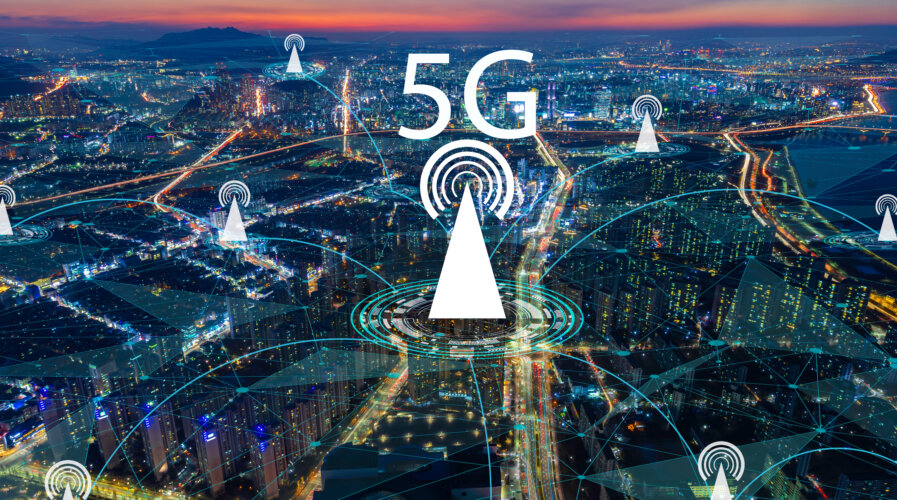
SecurityGen expands reach in Southeast Asia with 5G network security focus
- Southeast Asia is at the center of innovation in 5G applications and services.
- SecurityGen aims for sustained growth opportunities in Southeast Asia, driven by the region’s ambitious 5G rollout.
The rise of 5G in Southeast Asia is transforming the telecommunications landscape in the region and playing a pivotal role in driving innovation and growth. With faster speeds, lower latency, and increased capacity, 5G has the potential to revolutionize various industries, from healthcare and education to transportation and retail. The implementation of 5G networks also brings with it the need for robust security measures.
With the growing adoption of 5G networks, the threat of cyberattacks and data breaches has become a significant concern in the telecommunications industry. This highlights the importance of effective cybersecurity measures and the need for collaboration between mobile network operators, governments, and technology companies.
In light of this, SecurityGen, a renowned provider of security solutions and services for the telecommunications industry, has identified Southeast Asia as a key focus in its 2023 growth strategy. The company plans to focus its efforts on the region due to the widespread implementation of 5G networks and the launch of new services for subscribers and businesses, which require robust security measures to ensure their success.
Southeast Asia holds great significance for SecurityGen, generating 40% of its 2022 revenue. Two significant operators in Malaysia, Thailand, and Indonesia already rely on SecurityGen for their mobile network security. The provider also works with leading operators in other nations in the region.
The state of 5G in Southeast Asia
Ericsson’s November 2022 Mobility Report indicates that 5G is rapidly spreading in Malaysia and Southeast Asia, with the technology poised to become the dominant mobile technology in the region, boasting a near 50% penetration rate by 2028. The forecast predicts that the number of 5G subscribers in the region will increase from an estimated 30 million in 2022 to 620 million by 2028.
The growth in 5G adoption and increasing use of new immersive services by consumers are driving the surge in mobile data usage in the region. The forecast shows that the average mobile traffic per smartphone is expected to increase from 12.5 GB per month in 2022 to 54 GB per month in 2028, with a compound annual growth rate of nearly 30%.

Source – Shutterstock
According to Amit Nath, the co-founder and CEO of SecurityGen, Southeast Asia is a center for innovation in 5G applications and services, including Fixed Wireless Access, Connected Homes, Smart Cities, and automation and manufacturing enabled by IoT.
“To truly take advantage of the new opportunities and possibilities presented by 5G, operators must be confident that their networks are safe, secure and resilient: and that their customers are fully protected,” he added.
The recent high-profile cyberattacks on mobile service providers globally have shown their susceptibility to such threats. As providers generate substantial income, serve a vast customer base and hold massive amounts of data, they are attractive targets for hackers and cybercriminals. Network security is crucial for operators globally, both operationally and commercially. With 5G networks offering more services and connecting more devices, they also provide a larger area for hackers to exploit.
Navigating 5G security across the region
SecurityGen is strengthening its presence in Southeast Asia by moving its experts to the area and fostering local talent to establish a research team. The team will utilize SecurityGen’s extensive knowledge in the telecommunications industry and provide innovative solutions and services specifically tailored to secure 5G transitions for mobile network operators (MNOs). With these capabilities, the company is poised to collaborate with local operators in their 5G transformation efforts.
Dmitry Kurbatov, co-founder and CTO, SecurityGen, added, “Earlier this month, we shared our top cybersecurity challenges for mobile operators for the coming year, including 5G’s vulnerability to attack. Other leading threats include cyberattacks from hostile states and organized crime groups: and also advanced ransomware attacks. This information will be of significant value to those operators who are about to embark on or who are already rolling out 5G.”
Recently, SecurityGen revealed the significant cybersecurity challenges facing mobile service providers this year, including the susceptibility of 5G networks to cyberattacks. Other significant threats include attacks from hostile nations, organized criminal groups, and sophisticated ransomware attacks. This information will be valuable for operators who are either starting or already in the process of deploying 5G networks.
SecurityGen, based in Rome, was established in early 2022 and aimed to enhance 5G cybersecurity for mobile service providers globally, including Southeast Asia. With a research-oriented approach to cybersecurity and a focus on providing network operators and enterprises with advanced and future-proof security solutions for secure telecom transitions, the company introduced the ACE (Artificial Cybersecurity Expert) breach and attack simulation platform in the previous year. ACE is the first fully automated breach and attack simulation platform designed to secure mobile networks.
To further support its efforts, SecurityGen launched the 5G Cyber-Security Lab at the end of last year, a virtual environment where operators can experiment with new ways and solutions to protect their 5G networks against potential threats and vulnerabilities.
READ MORE
- 3 Steps to Successfully Automate Copilot for Microsoft 365 Implementation
- Trustworthy AI – the Promise of Enterprise-Friendly Generative Machine Learning with Dell and NVIDIA
- Strategies for Democratizing GenAI
- The criticality of endpoint management in cybersecurity and operations
- Ethical AI: The renewed importance of safeguarding data and customer privacy in Generative AI applications


